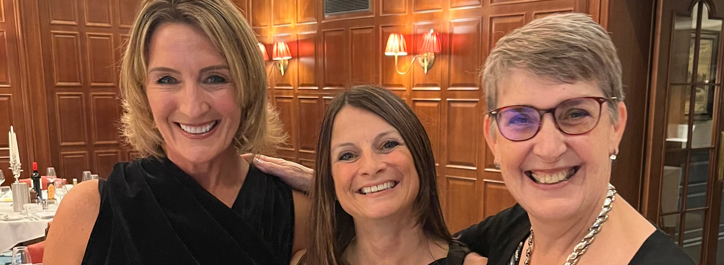Career Clinic – The Interview
Question: “What’s your strategy for handling a stressful day at work?” Answer: ‘Go home and open a bottle of red’. Question: “What’s your greatest weakness?” Answer: ‘Chocolate.’ OK – we all know it’s true but these are not the answers to give in a job interview - although both of these exchanges actually occurred. Your CV has opened the door for you, but these answers just banged it shut! Those smart people at Harvard have shown that interviews are one of the weakest methods of predicting a candidates future performance – the bad news is that practically every company uses them, so with an interview coming up, what’s your plan? It needs to involve more than red wine and chocolate!
You’ve got about an hour to convince your interviewer that you are their best candidate for your dream job…. here at Pure Resourcing Solutions, we have come up with a 3 step plan to help you achieve it.
Step 1 - Research and Prepare
As the well-worn saying goes – fail to prepare and prepare to fail.
The company: Review and add to the information you already have on the company. Check their website and the press, do web searches, speak to friends and family and collect all and any information you can. Your recruitment consultant will also be a font of knowledge. Understand and sample their products or services; know their history, goals and competitors. Build your knowledge of the specific requirements of the role but also, most importantly, the company’s broader values. Whatever your skills and experience, the person interviewing you is concerned with, and judging you on whether you will fit into the team and company’s culture.
The interviewer: Who are they? What’s their role? Will there be more than one person interviewing you? Google them and check LinkedIn.
The questions: Worried about the questions they’re going to ask? You’d perhaps be over confident (or arrogant?) not to be. We’ve gathered all our experience together and put a list of questions on the Pure website (we know that many interviewers use the same basic questioning techniques). Some questions are designed to highlight personality traits that are sought by companies, such as confidence levels or the ability to think under pressure. This means you can prepare thoroughly and have some unique, impressive replies ready. Do this ‘homework’ research and be a step nearer your goal. It’s in your hands…
Step 2 – Plan To Make A Positive First Impression
Remember you never get a second chance to make a good first impression!
Dress to impress. Neat and tidy and as smart as you think your boss will be. Your care here reflects how seriously you are taking the interview. Don’t think about whether you should polish your shoes – do it!
Plan your route to the interview. And aim to arrive 10 minutes early. Running in, even as fast as Bolt, is likely to be combined with sweating like a 100m sprinter - and then dropping your keys while apologising about getting caught in traffic. Bang! The job door could be shut and you’ve not even started the interview. However, do take the company’s telephone number with you just in case the worst happens and you are delayed and need to go into damage limitation mode.
Be polite and friendly to everyone. One interviewer we know likes to sit in reception so he can see how polite and engaged his candidates are to all members of staff. No Tom Cruise jumping around, however excited you feel; nor cynical asides, no matter how witty you think they are.
Greet your interviewer with a smile, a handshake, good eye contact and walk in.
Step 3 - The Interview
You’re going to a strange place to meet someone (or a few people) that you don’t know and they are going to ask you questions - the answers to which could change your life. Of course you’re going to feel nervous! It’s natural and the truth is that there is pressure. This is your future. However, being terrified won’t help and so – return to Step 1 – you need to prepare yourself mentally.
Your CV got you in. Settle your nerves. Your interviewer is another human and they wouldn’t take time interviewing you unless they genuinely thought you could do the job. You do get to answer some questions personally about your history and the sort of person you are – remember you’ll be talking to someone who is interested in your thoughts and wants to hear good things about you. They have even given you a list of things they want (in the job description) and we’ve given you a list of possible questions, they could ask and you should ask, on our web site! Your preparation is to give you confidence because you have thought of (practically) everything. Rarely will you be given the chance to list your strengths and attributes directly and so you need to be relaxed as you weave them into your responses.
- Practise your questions, ideally role play them with someone.
- Give yourself plenty of time on the day.
- Be as natural as you can. That’s not to say act a part, be yourself and let your preparation and genuine interest shine a light on you.
Work on relaxing but remaining focused.
After the interview, follow up with a ‘thank you’ email directly to the interviewer or via your recruiter. It’s polite and demonstrates your receptiveness, enthusiasm and wish to continue the conversation.
The interview was over, the candidate smiled and stood up, and the interviewer held the door open for him to leave. It was over and he was starting to relax. With the door open the interviewer paused and, turning, smiling said, ‘Give me three good reasons why I should remember you.’ The interviewee stood speechless – he froze and couldn’t answer the question. This really happened. Never let your guard down…or at least wait until you are about ten miles away!
Good luck with your next interview!



